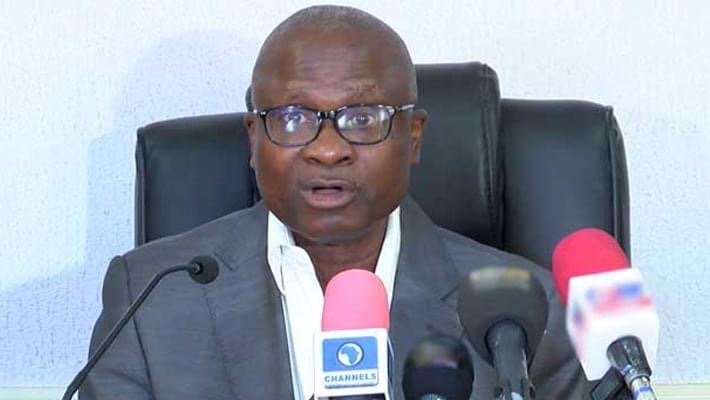Unveiling Nigeria’s epidemic preparedness beyond headlines
By Abujah Racheal, News Agency of Nigeria (NAN)
In the lush fields of Nasarawa State, 43-year-old Mrs Mariamu Jubril was tirelessly nurturing crops that sustained her family.
However, a silent battle raged – one that would test her resilience.
Jubril recounts how it all began with a persistent fever accompanied by bone aches and fatigue, which she initially dismissed as a common sickness.
“However, as days stretched into weeks, my condition worsened.
“Misunderstood to be typhoid and malaria, my struggle took a perilous turn, as the true culprit, Lassa fever, silently ravaged my body,” she narrated.
It was when she returned to Keffi from Lafia that laboratory diagnosis unveiled the harsh reality.
“The diagnosis sent shockwaves through the medical staff, who recognised the gravity of my condition.
“With treatment underway, I waged, however, a battle against the relentless virus that threatened to snatch away my life,” she says.
According to Jubril, the illness impaired her hearing.
“Undeterred, I refused to succumb to despair. With the same determination that fueled my days on the fields.
”I sought a solution, only to be confronted by the harsh reality of my financial limitations,” she adds.
According to the World Health Organisation (WHO), Lassa fever is a hemorrhagic fever that causes serious damage to various organs, reducing the body’s ability to function.
The virus is contagious and can spread from person to person via bodily fluids, including saliva, urine, blood and vomit.
According to the Nigeria Centre for Disease Control and Prevention (NCDC), Nigeria faced a significant outbreak of Lassa fever in 2023, recording 4,702 suspected cases, including 877 confirmed cases and 152 deaths between epidemiological weeks 1 and 15.
The virus is endemic in Nigeria and some other parts of West Africa. It is primarily transmitted by the multimammate rat.
Public health experts are worried that responding to the outbreak is challenging due to concurrent emergencies.
The experts explain that the symptoms vary, and diagnosis can be difficult, with many cases being asymptomatic or mild but dangerous.
They emphasise that laboratory testing is necessary for confirmation, noting that cases have been reported in states bordering Cameroon and Benin.
However, regional and global risks are considered low, as transmission occurs mainly through contact with contaminated food or household items, with minimal human-to-human transmission.
This year (2024) marks 55 years since the identification of the virus causing Lassa fever in the village of Lassa, in Borno State, Nigeria.
Nigeria, like many other countries, has had public health crises in recent years.
From outbreaks of diseases such as Ebola, typhoid fever and malaria, to the ongoing battle against Lassa fever and other illnesses, the country has had to confront the challenges of epidemic preparedness head-on.
But beyond the headlines that often focus on the immediate response to these outbreaks, there is a deeper story to be told about the country’s efforts to improve its overall epidemic preparedness and response capabilities.
The country has made significant strides in strengthening its public health infrastructure and building capacity to effectively detect, respond to, and prevent future epidemics.
One key aspect of the country’s epidemic preparedness efforts is the establishment of the NCDC in 2011.
The agency serves as the country’s national public health institute responsible for coordinating the surveillance, detection, and response to infectious disease outbreaks.
Through its network of state-level epidemiologists and laboratories, NCDC has been able to rapidly respond to disease outbreaks and prevent spread.
In addition to establishment of NCDC, Nigeria has invested in training healthcare workers and strengthening its healthcare system to better respond to public health emergencies.
It has established emergency response teams and developed contingency plans for a range of potential epidemics.
Furthermore, the country has worked to improve its disease surveillance and reporting systems, allowing for more timely and accurate detection of outbreaks.
It has also implemented electronic reporting systems and established a national database for tracking disease trends, enabling public health officials to quickly identify and respond to potential threats.
In spite of these advancements, public health experts still say challenges remain in the country’s epidemic preparedness.
They attribute these challenges to funding constraints, inadequate healthcare infrastructure and security concerns.
They also cite environmental changes and global factors, which contribute to the unpredictable nature of emerging diseases, as obstacles to the country’s ability to effectively respond to epidemics.
Dr Ishaku Akyala, Associate Professor of Infectious Diseases and Public Health Epidemiology in Nasarawa State, says there are limited public health awareness, weak disease surveillance systems, and coordination and communication challenges.
According to Akyala, addressing these issues will require sustained investment, collaboration and commitment from various stakeholders to strengthen public health infrastructure, improve healthcare services, enhance disease surveillance and promote public health awareness.
“By overcoming these challenges, our nation can enhance its epidemic preparedness and response capabilities to better protect the health of its population,” he says.
Dr Jide Idris, the Director-General of NCDC, expresses concern over the recurring pattern of preventable diseases claiming lives in the country in spite of the nation’s awareness of disease patterns and their seasonal occurrences.
Idris emphasises the importance of preventive measures.
“It is better to prevent these diseases from happening than waiting for them to occur.
“Despite the country’s knowledge of disease patterns, preventable diseases continue to claim lives annually, highlighting the urgency of proactive measures,” he says.
He outlines the agency’s strategic roadmap, focusing on leading preparedness, detection, and response to public health emergencies.
He stresses government’s responsibility to prioritise citizens protection and disease prevention, underscoring the importance of timely detection and proper response when diseases occur.
He emphasises the need for collaboration between the federal and state governments, as disease control efforts primarily take place at the state and local government levels.
He advocates a holistic One Health Approach involving sectors beyond healthcare, such as agriculture and environment, recognising the interconnectedness of human and animal health.
Highlighting the zoonotic nature of diseases such as Ebola, Monkeypox, Lassa fever, Yellow fever and COVID-19, Idris says there is the need for multi-sectoral partnerships to effectively combat the diseases.
He notes ongoing collaborations with health commissioners and the Nigerian Governors Forum, and stresses the importance of understanding social determinants in different states.
He believes that addressing health security requires substantial investment and tailored research.
He points out disconnect between sub-national entities and the Primary Healthcare Development Agency (NPHCDA), emphasising the need for strengthened partnerships at the state level.
A Nigerian scientist and former Vice-Chancellor of Redeemer’s University, Prof. Tomori Oyewale, urges multi-dimensional approach to epidemic preparedness, integrating research, data analysis, and stakeholder engagement.
According to him, the initiative should aim to go beyond surface discussions and evaluate Nigeria’s healthcare infrastructure, policy framework and community resilience in the face of potential epidemics.
Regarding strategies, he suggests comprehensive research, stakeholder engagement, public discourse, advocacy, resource allocation and international collaboration to effectively address health security threats.
Analysts are convinced that nobody prays for emergencies, but emphasise that preparedness is crucial to tackling emergencies.
They believe that citizens desire a strong emergency response system capable of efficiently and swiftly managing outbreaks and critical situations.
NCDC’s budget allocation for the fiscal year 2024 highlights key shifts in funding priorities aimed at bolstering the country’s disease prevention and response capabilities.
The total sum allocated to the agency in the 2024 stands at N4.356 billion, which stakeholders in the health sector say, did not indicate a strong commitment to safeguarding public health amidst evolving global health challenges.
Among the notable changes reflected in the budget are increase in specific budget lines dedicated to critical areas of disease prevention and response.
Procurement and distribution of pharmaceutical and non-pharmaceutical supplies for the National Strategic Stockpile witnessed a significant boost, with an additional N30 million allocated from 2023 to 2024.
The increase underscores the heightened focus on enhancing stockpiling capabilities to support disease detection, prevention, and response efforts nationwide.
Similarly, sustained efforts in combating antimicrobial resistance are evident through a five million Naira increase in funding for antimicrobial resistance surveillance in sentinel sites across the country.
This augmentation, health economists argue, did not reaffirm the country’s commitment to monitoring and addressing the growing threat of antimicrobial resistance, a critical aspect of public health preparedness.
While investments in certain areas recorded increases, the budget also reflected strategic adjustments and new priorities.
In spite of maintaining the same budget allocation for equipping the NCDC headquarters with communication and response infrastructure, introduction of new budget lines shows a forward-looking approach to strengthening Nigeria’s public health infrastructure.
Of particular significance is introduction of interventions to develop capacity for public health informatics, emphasising the importance of harnessing data analytics, modelling, and forecasting to enhance emergency preparedness and response.
Additionally, allocation of N95 million for strengthening subnational health security shows the imperative of bolstering health security at subnational level, complementing efforts at the national level.
Furthermore, establishment of new budget lines dedicated to training, capacity building, and subnational emergency response highlights a proactive stance in fortifying the country’s readiness to combat emerging health threats effectively.
However, amid the strategic realignments and increased investments in key areas, reductions in funding for dissemination of surveillance outputs and digitalisation of disease surveillance shows potential shifts in priorities.
Nigeria’s epidemic preparedness demands a concerted effort encompassing diverse stakeholders, innovative strategies, and sustained investment to safeguard public health and mitigate the impact of emerging diseases.
As the country continues to navigate the complexities of public health emergencies, concerted efforts to improve epidemic preparedness are essential for protecting the health and well-being of its citizens.
By investing in strong public health infrastructure, training healthcare workers and enhancing disease surveillance systems, the country will be taking important steps toward building a more resilient and responsive healthcare system that can effectively address the threats of future epidemics. (END)
***If used, please credit the writer and the agency **
Published By
- Agriculture and Environment Desk Controller/Website Content Manager.
Has also recently published
 HealthJuly 11, 2025FG, stakeholders to strengthen HIV response amid funding cuts
HealthJuly 11, 2025FG, stakeholders to strengthen HIV response amid funding cuts General NewsJuly 11, 2025Corrupt politicians now hide loot in cryptocurrencies – EFCC
General NewsJuly 11, 2025Corrupt politicians now hide loot in cryptocurrencies – EFCC ForeignJuly 11, 2025U.S. entices ‘illegal’ immigrants with free flight, $1,000 to self-deport
ForeignJuly 11, 2025U.S. entices ‘illegal’ immigrants with free flight, $1,000 to self-deport Culture & TourismJuly 10, 2025Gov. Otu injects N18bn into Cross River tourism
Culture & TourismJuly 10, 2025Gov. Otu injects N18bn into Cross River tourism





